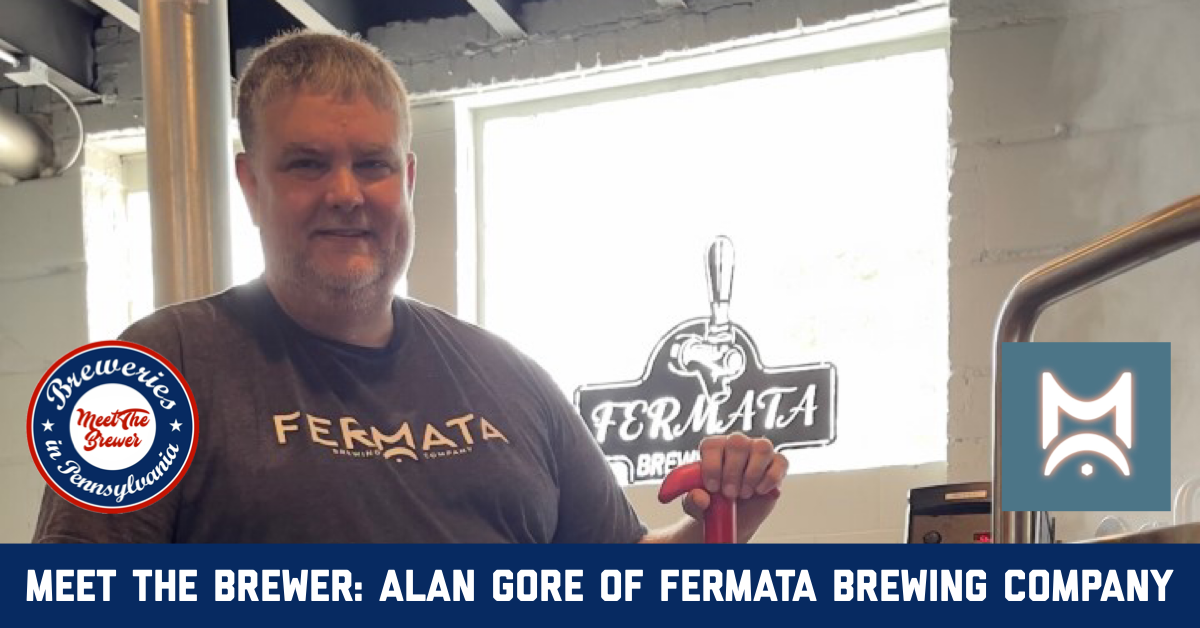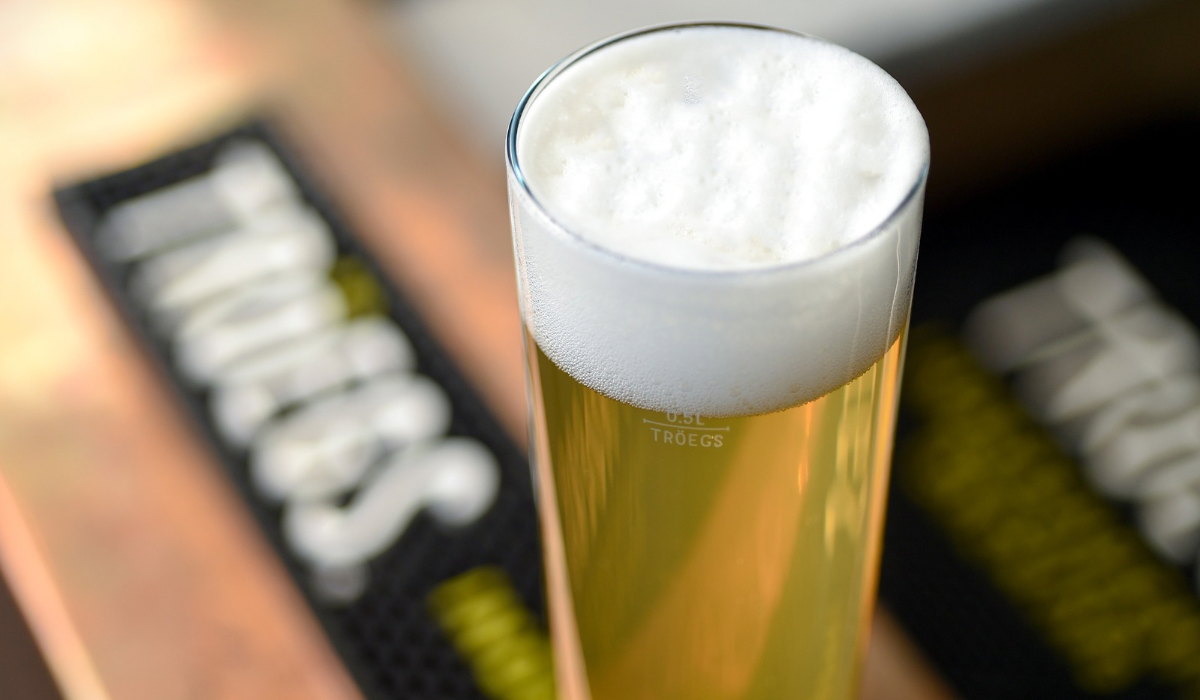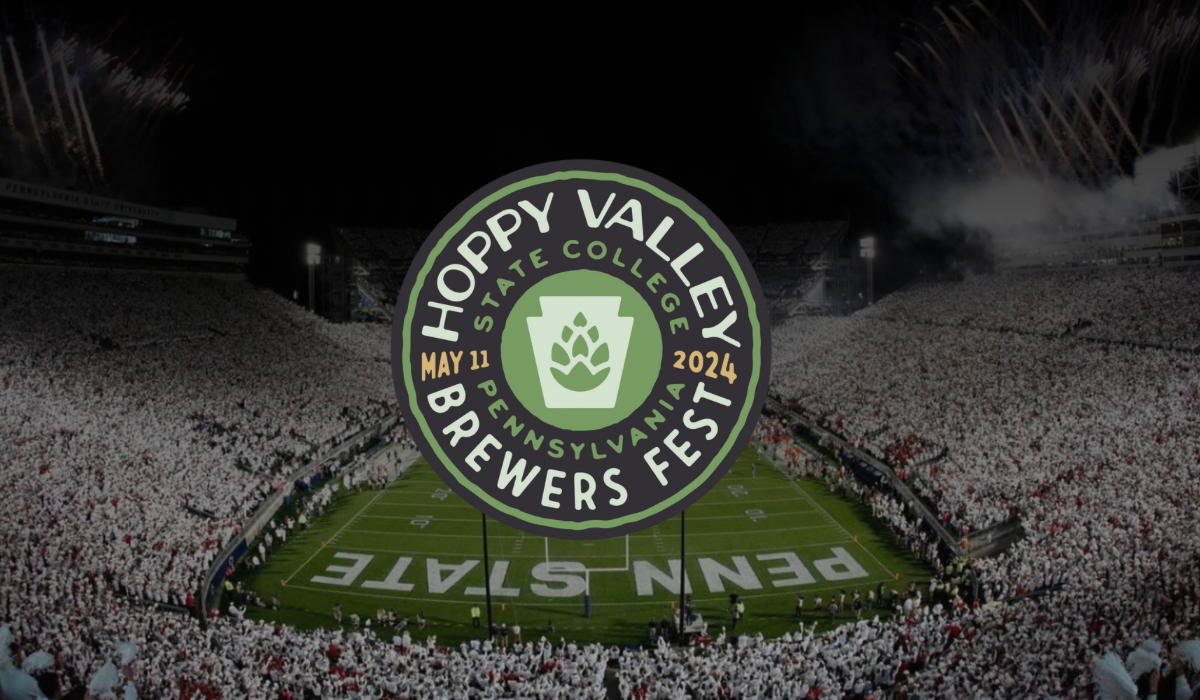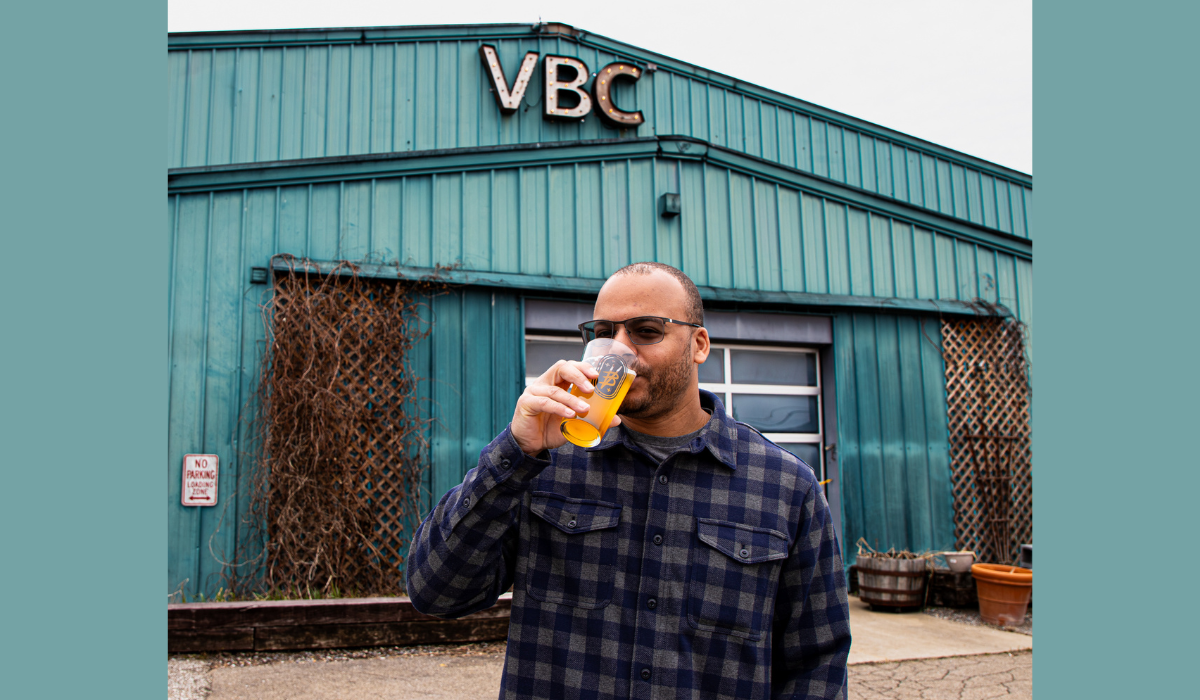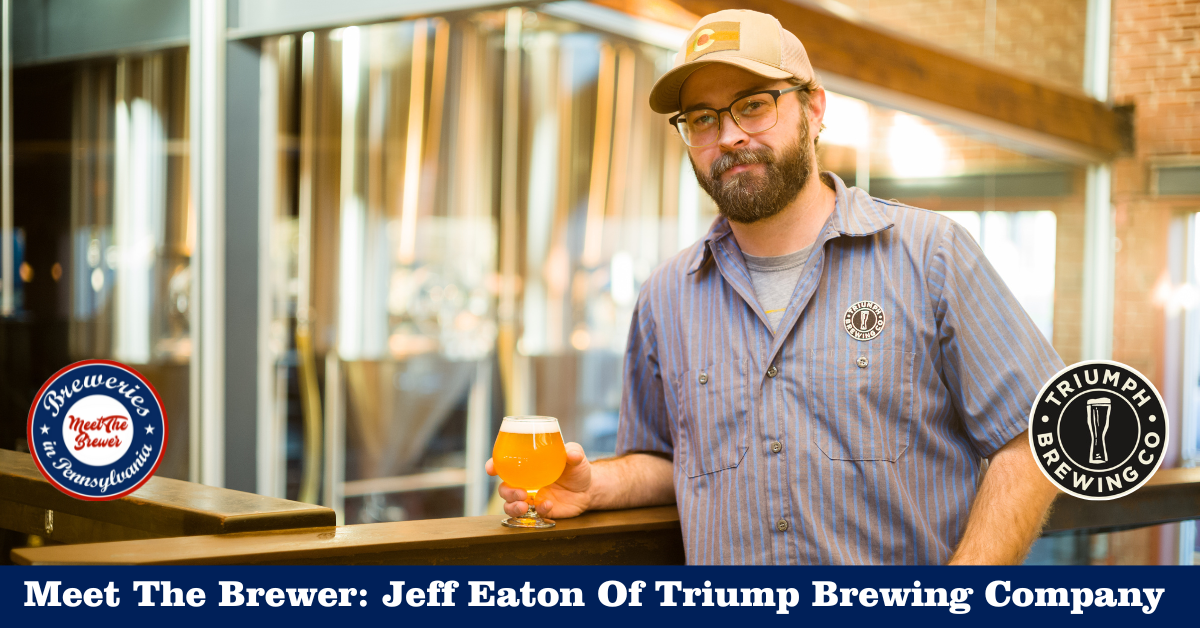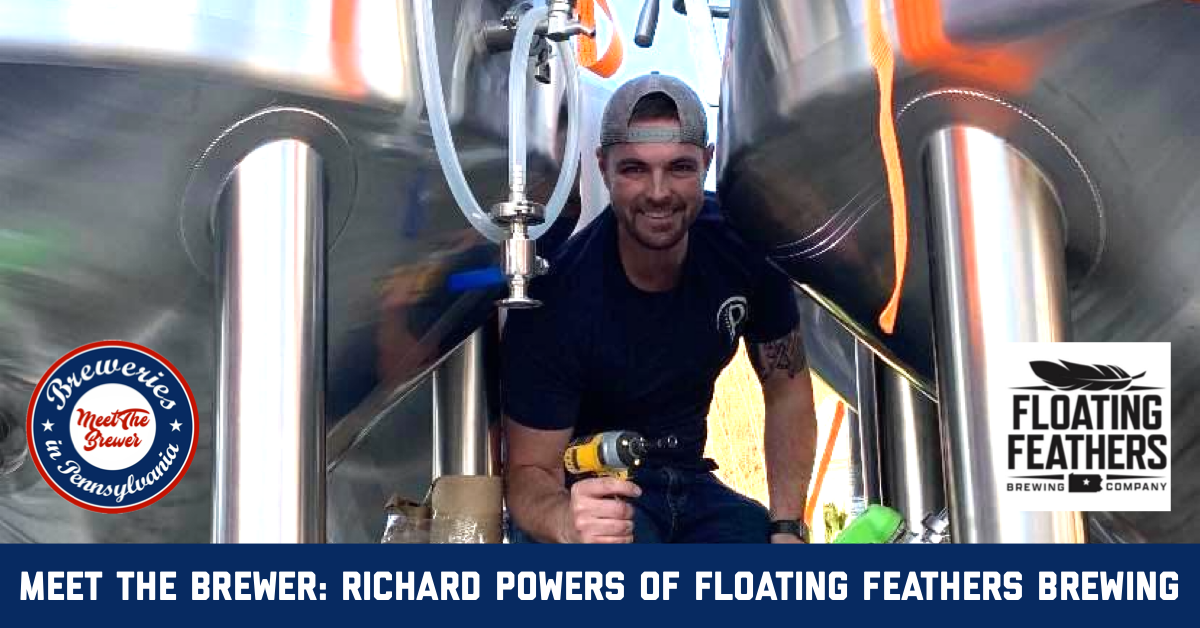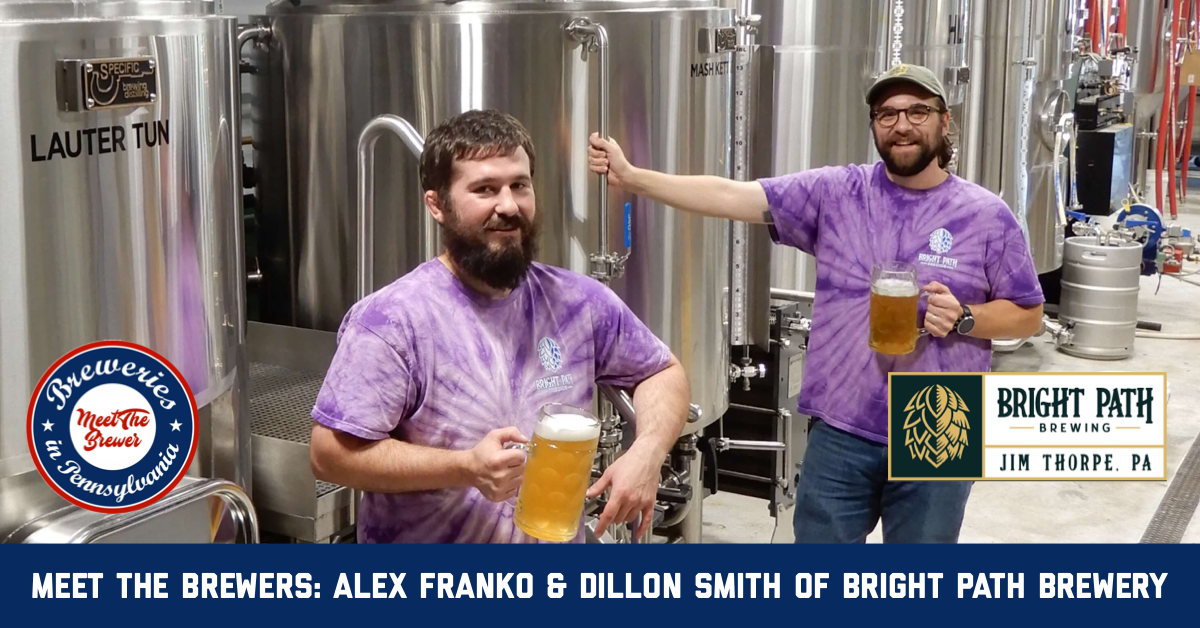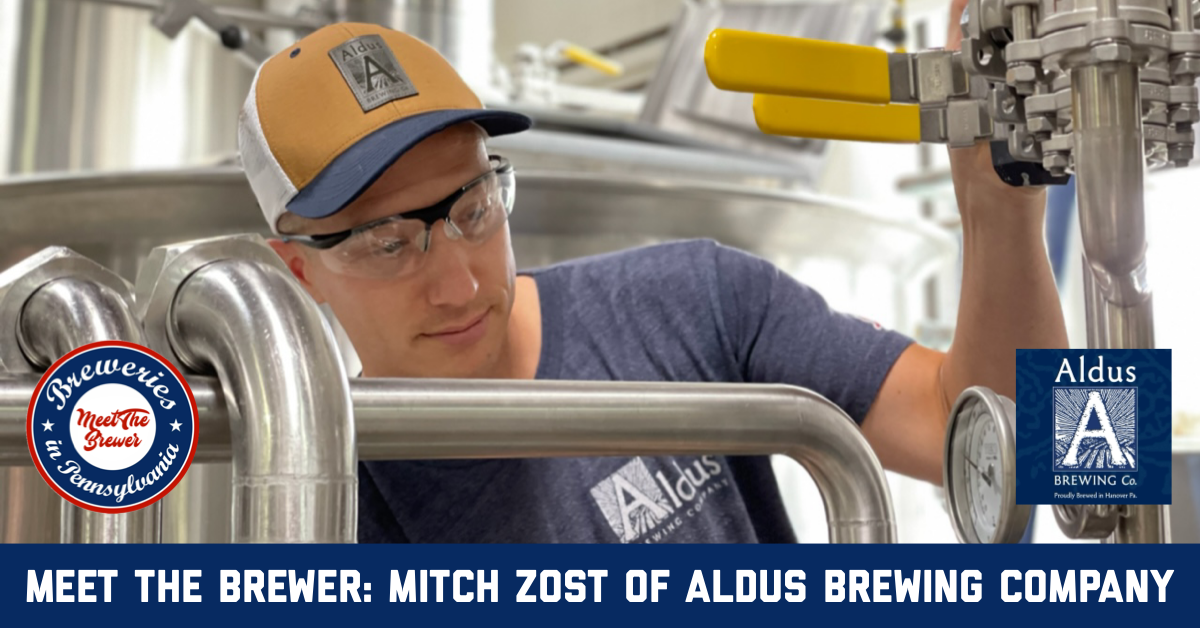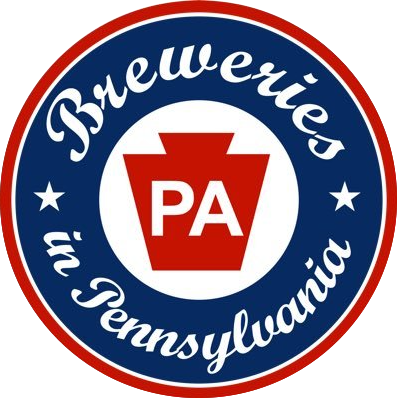Welcome to our “Meet The Brewer” series! Where we interview brewers in Pennsylvania, from breweries small to large. Let us know if you know anyone who should be featured, email us at [email protected].
Fermata Brewing Company first opened in March of 2022 at 918 Merchant Street, in Ambridge, PA. Fermata opened in a 4,500 sq/ft, 100-year-old building in downtown Ambridge. They brew on a 10BBL brewhouse and offer a wide variety of styles with 16 taps. They focus on having a lot of live music acts and feature a monthly rotating community tap that supports a local non-profit organization.
Alan Gore is the co-owner and head brewer at Fermata Brewing. Read more to find out his introduction to craft beer, where he sees the craft beer industry heading, and more!
What was your introduction to craft beer?
Being from West Virginia, at my initial drinking age, the law did not allow for beer above a certain ABV (I believe it was capped at like 6.2?). So not many breweries really distributed there at that time. However, Boston Brewing, Great Lakes, and Sierra Nevada did. I suppose some may not consider those craft breweries today, but 25 years ago there was not really any question. To this day Sierra Nevada Pale Ale and Great Lakes Edmund Fitzgerald are still favorites of mine.
How did you get started as a brewer?
In college, some other friends of mine were dabbling in homebrewing, I guess due to the limited options in the state as well as a curiosity for the science, art, and general “how things work” kind of spirit. I brewed on and off for several years and started brewing far more often in the garage in the last 10-11 years. The pandemic hit, then my current partners and some other very special friends of mine (Trans-Allegheny Brewing Collective forever!) really started getting more active and we decided to turn the hobby into an actual brewery. So, probably nothing original here; I feel like this is a common route, ha.
What style allows you to be the most creative, and why?
This is a tough one. I enjoy experimenting with ingredients in general, as well as different methods of brewing. Taking what I learn with one style and applying or adapting it to a different style, and making something out of the ordinary that works well is super exciting to me. Fruited sours and different methods for achieving the level of souring, fruiting, and other things you can add all allow a good amount of room for creativity. While I love being able to nail a classic style, the day and age we live in now throws typical convention out the window. So, experimenting with different hops and hop additions, the timing in the kettle, or no kettle and just whirlpool, the dry hop timing has always been fun for IPAs. But nowadays it’s more awesome to do those things for lagers or other styles where those methods are not topically used. Did I answer the question?
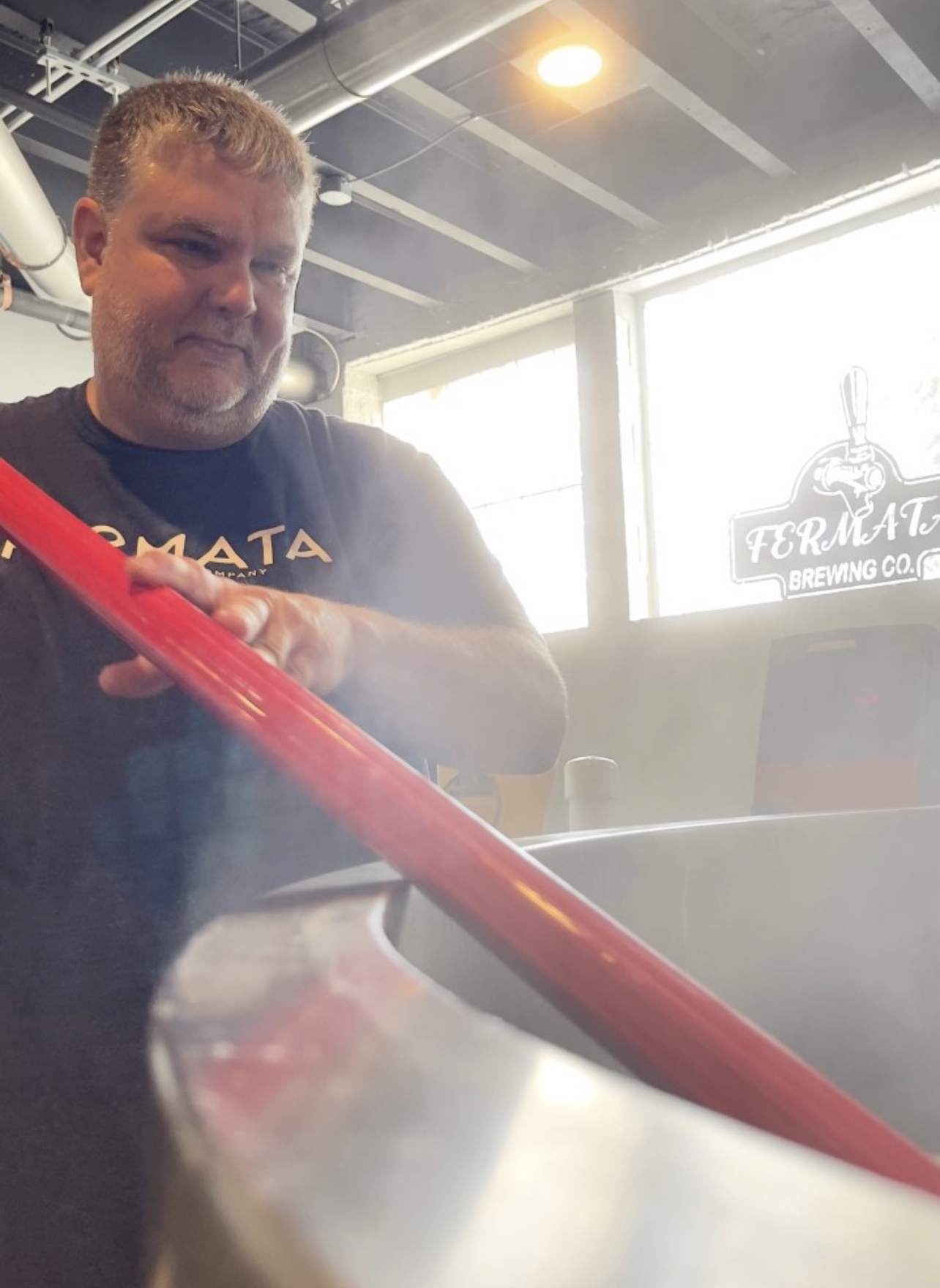
What was the first beer you ever brewed, and what did you learn from it?
Pontius Pilot Porter. Totally named after the dude the killed Jesus and my friend’s Honda Pilot. Make perfect sense, huh? I learned that bottling sucks. They can explode! Ask me how I know. I learned that I had a TON of things to learn and I think it motivated me to keep seeking out info, reading everything I could, and hanging out with folks that knew more than I did.
Where do you see the craft beer industry heading in the next few years?
I think we are moving back toward the traditional and classic styles. Here in Pittsburgh like most other areas, hazies still rule the register, but in the past couple of years, I’ve noticed many breweries are making some fantastic alternatives. Granted, hazies are still very present in most places, but you didn’t really see many English Bitters, Grodizskies, herbal/spiced Saisons, and my goodness the Kolsch craze! You see these and other styles many of us love not only on tap lists but in cans in the wild, too. I don’t think that was as prevalent just five years ago. Shifting from the beer-centric view, I believe more diversity among breweries in the industry as well as customer bases is necessary. Always be learning, always be changing/evolving. Lots of work is being done in the Pittsburgh area. Much more is needed, though.
Describe what it’s like to be a brewer in Pennsylvania.
In my area it’s awesome! I’m very new to the industry and there’s so much I know I need to learn, but the support I have received from the brewing community here has been overwhelming. I totally have imposter syndrome with it, but I think that will hopefully keep me humble and hungry for knowledge and growth in the craft. But I have many new friendships and a circle of support and resources of like-minded people who just want everyone to do well. That feels good no matter what you’re into.
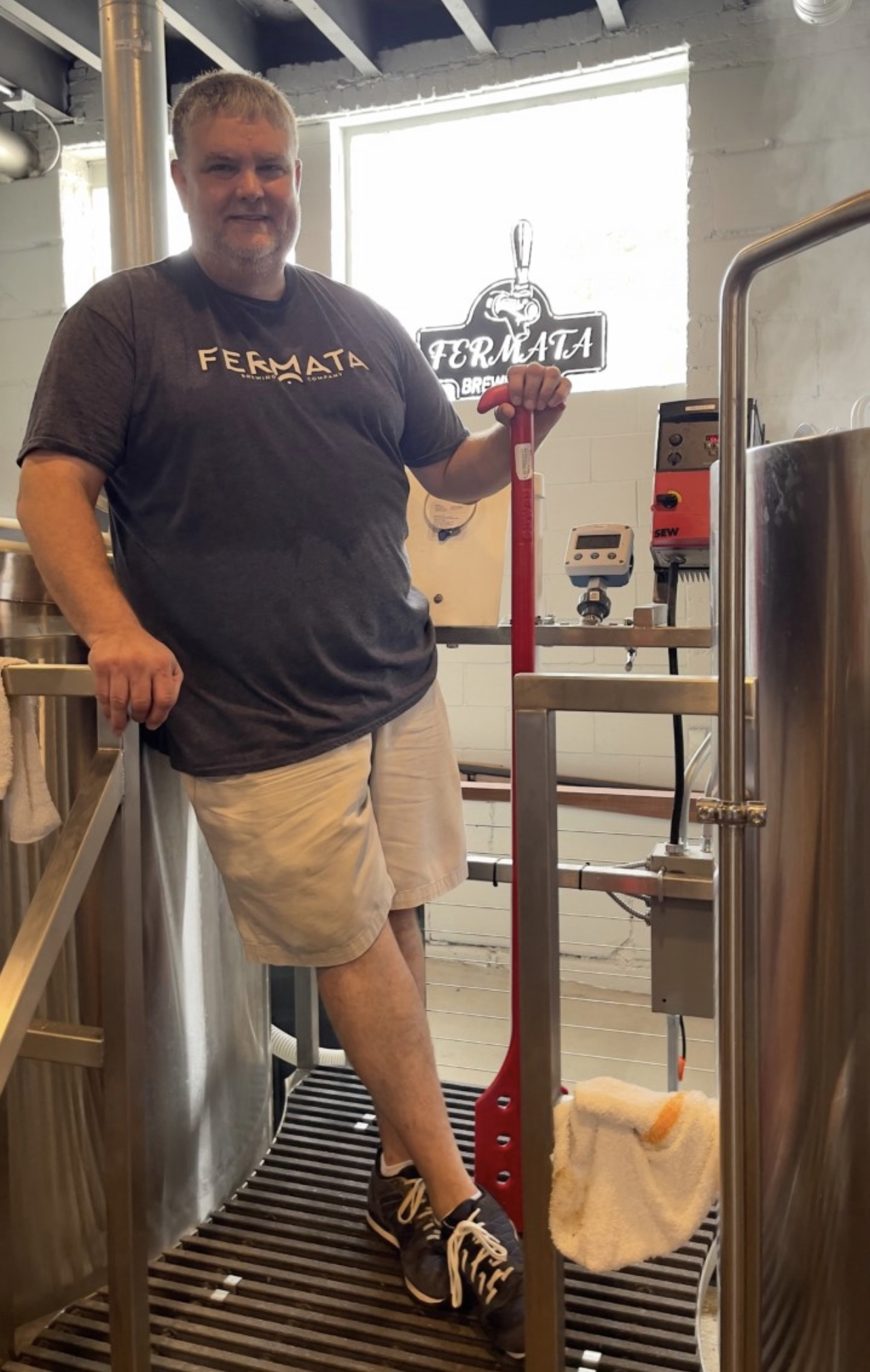
What is the inspiration behind your beer names?
Because we are all music nerds at Fermata, this naturally became a theme for a lot of things we do. Just about every beer so far has a name connected to a song or band or even chords and notes. We had an IPA called Pentatonic Scale, for example. It’s a musical scale with five notes per octave, and it’s an IPA with five hops, ha. We also like to think of our community. Ambridge Ale is our West Coast Pale and 1824 is a Farmhouse Saison that pays tribute to the year Old Economy Village was founded.
What is your favorite beer to drink right now?
Well, it’s summer, so IC Light Mango is in regular rotation. We have an American Light Lager we call Practice Beer that checks all the boxes for a summer quencher as well. Allegheny City has a Rice Lager out right now that also kicks ass. So I guess anything that’s lower ABV and works with hot weather, ha!
What is the most important lesson you learned in the beer industry so far?
It’s always something. You have to realize that something will ALWAYS come up, or ALWAYS break, or ALWAYS not go the way it was planned. The quicker I realized that the better I was able to deal with things and not get discouraged. Being able to adapt and focus more on being a problem solver and avoiding getting upset is a huge asset for anyone. I also learned that I can’t do everything. We have a fantastic team at Fermata, and my team in the brewhouse is no exception. Jim and Liarose are our assistant brewers and we couldn’t churn out what I think are quality beers without their help.
Thank you to Alan for talking with us! Make sure you visit Fermata Brewing Company’s website to see all the latest beers and news. Also, follow Fermata Brewing on Facebook and Instagram.




